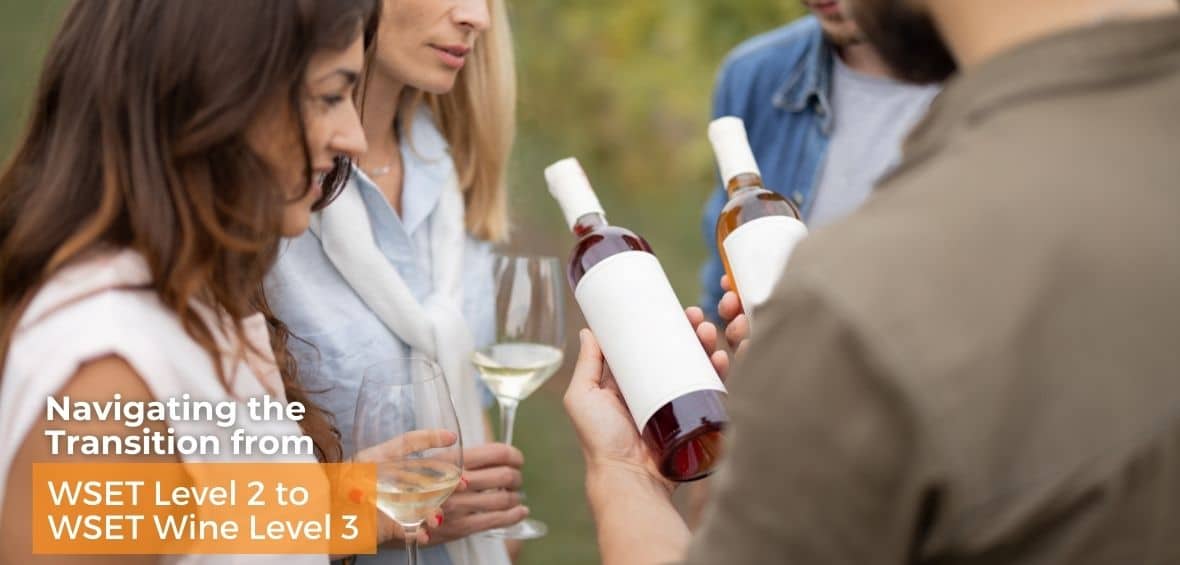Students preparing for WSET or CSW examinations should be able to decipher a German wine label and understand the nuances separating “table” wines from “quality” wines.
It is also critical that students be able to grasp the following concepts, as well as be able to relate them to the consumers with whom they will interact as their wine careers launch and grow.
1. Not all German wines are sweet.
In the minds of most U.S. Consumers German wine is always sweet, for two reasons. First, an ocean of mediocre semi-sweet German white wine flooded the United States in the mid-twentieth century (Blue Nun, anyone?). Second, Germany has always had a stellar international reputation for producing some of the worlds most decadently sweet late-harvest wines and Eiswein.
Only in the last twenty years or so have dry German wines ascended to a prominent place in on- and off-premise establishments. The term “trocken” indicates dryness, and many Kabinett wines (see next section) are also dry.
2. The Prädikatswein system is not a sweetness scale but a ripeness scale.
In 2007 the term Prädikatswein was introduced to segment quality wines with distinction from other quality wines (QbA).
The Prädikatswein system encompasses wines with the designations Kabinett, Spätlese, Auslese, Beerenauslese, Trockenbeerenauslese and Eiswein.
Beginning with Kabinett, these wines have increasing must weights, i.e., sugar levels, at harvest. The wines tend to have more body as the scale moves toward Trockenbeerenauslese, for example.
While it is true that Beerenauslese wines will have more sugar than Kabinett wines, it is not always that case that Auslese wines will have more residual sugar than Kabinett wines. Many dry Auslese wines exist.
Therefore, one must always consider the Prädikatswein scale as denoting a ripeness level, not a sweetness level of the resulting wine.
3. Not all German wines are white.
Given Germany’s northern latitude, it is a miracle that grapes grow there in the first place. Riesling dominates the northernmost regions of the Rheingau and Mosel-Saar-Ruwer, but more southerly Baden is in the same climatic zone as Alsace and the Loire.
Baden is home to red wines such as Spätburgunder (Pinot Noir) and Blauer Portugeiser (no relation to Portugal). The former wines are more highly regarded.
4. Many white wines can age, with German Riesling as the shining example.
Importer Terry Theise famously wrote, “Riesling is first among equals among the white grapes that age astonishingly. It undergoes a metamorphosis, almost literally. Mature Riesling barely resembles its younger self. If you were an alien and some earthling showed you first a butterfly and then a caterpillar, and said true or false, this creature came from that one, I doubt you would infer it. Mature Riesling becomes, simply, the world’s most complex wine.”
Given Riesling’s ability to keep its acidity as it gains potency of flavor through ripening, the best Rieslings can age for decades. Generally, sweeter Rieslings can age for a longer duration than the drier versions.
5. The world’s steepest vineyard is in Germany’s Mosel-Saar-Ruwer region.
This is more of a fun fact, but it raises the issue of why viticulture can flourish in this part of Germany.
According to the Deutsches Weininstitut, the famous Bremmer Calmont vineyard has a 60 percent gradient and a height of 951 feet. Mechanized harvesting is impossible.
Given the vineyard’s aspect, grapes can access the sun’s warmth, and the danger of frost damage is minimized as cold air sinks past the vines to the Mosel River below.
Image: Michal Osmenda














